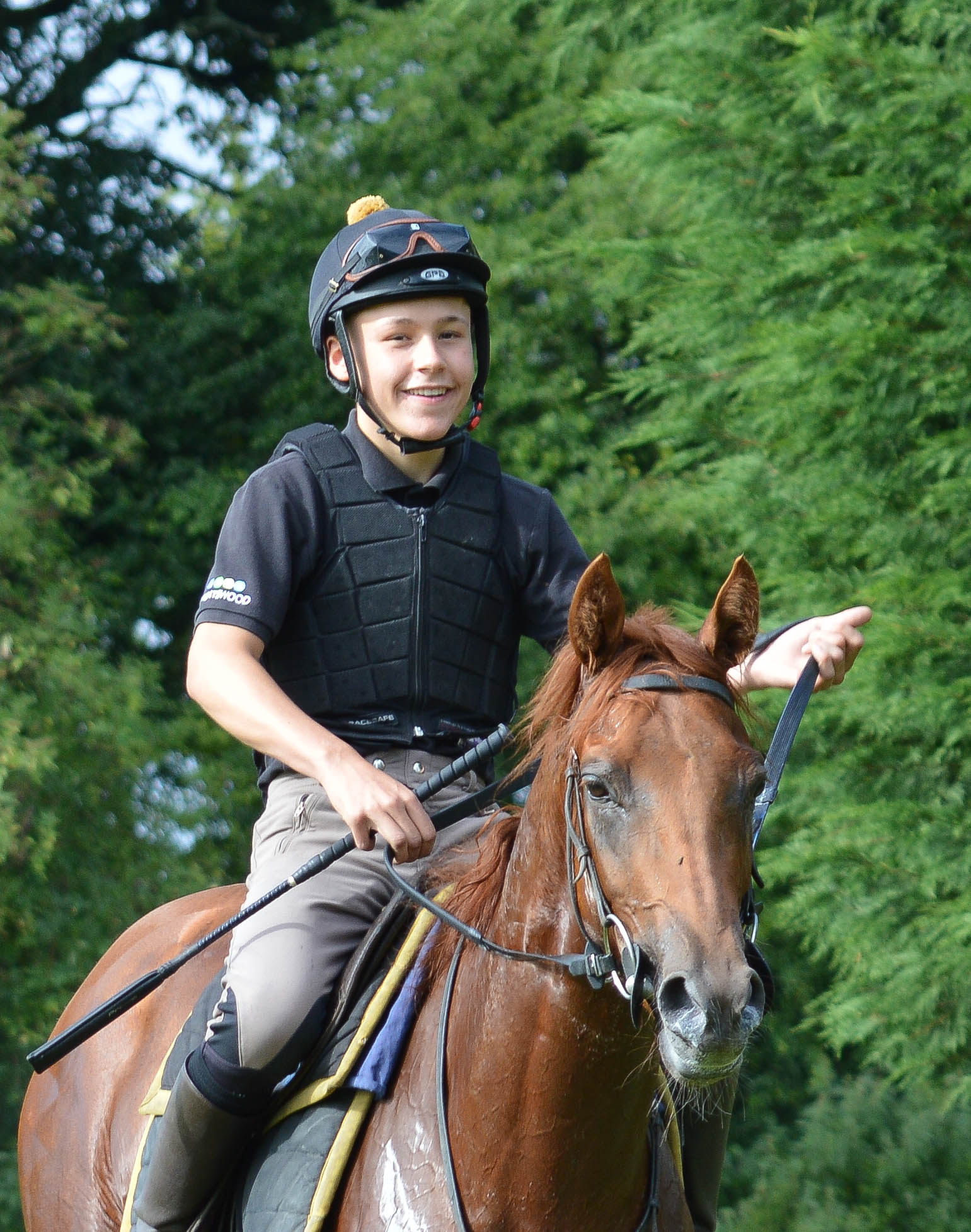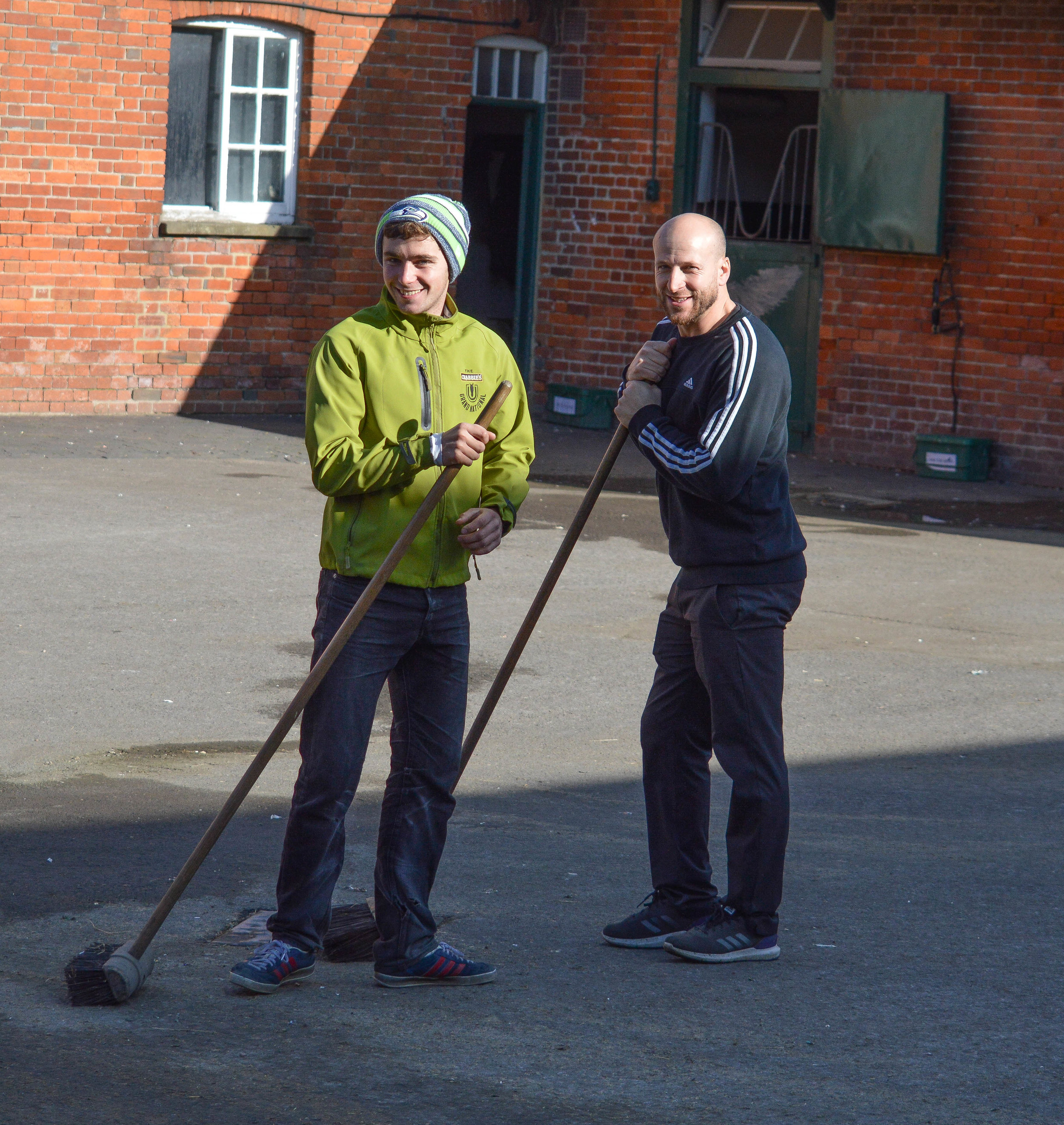2019 Lycetts Team Champion Awards
/Henry Owen (left), Jennie Sherrard and Josh Bennett (right).
It may only be in its second year, but the concept of Team Champion was never going to be just another annual awards bash. The award itself rewards the completion of a pathway to better business practice and is by no means simply the finishing line. Now it’s time to ask if the high-reaching objectives have been met by Team Champion and, if so, is it time to take the concept beyond the UK?
At the start of 2017, Chief Executive Rupert Arnold proposed the initiative of a Team Champion Award to the National Trainers Federation (NTF), and it wasn’t long before The Racing Foundation and sponsors Lycetts Insurance Brokers came on board. Like all good ideas, the concept was simple, the objectives being to deliver praise and a sense of achievement for the training yards with the highest standards of employee management, to showcase the positive results of developing a team that works well together, to raise awareness about safe working practices and to improve recruitment and retention rates by promoting the most successful management practices and encouraging their wider adoption among racehorse trainers.
Feedback from all those who entered in the first two years, whether or not finalists, has been hugely positive and Rupert Arnold reports, “I am delighted at how enthusiastically trainers and their staff have responded to this new award. By participating, they have opened their businesses to scrutiny by knowledgeable professionals and demonstrated that British racehorse trainers offer great places to work. We have established a strong base from which to build the award for the future. I know other trainers are already keen to follow their colleagues’ example next year, and we have acquired a bundle of knowledge and lessons to share with them”.
The Team Champion concept is underpinned by an industry standard established by the NTF, called The Winning Approach, from which it borrows its assessment criteria. One of the key challenges facing all trainers is the attraction and retention of skilled riders and grooms. Trainers are competing with many other industries for an increasingly demanding workforce, with fewer people favouring the type of work offered in a racing yard. The Winning Approach has been designed to assist trainers in managing their staff in a way that attracts and retains them, to help them engage and motivate their staff and create a better working environment.
The Team Champion categories are not only objectives in winning an award, but can also be adopted as positive steps in building a better business practise; and that is the biggest message coming back from those trainers who have so far taken part. Stars are awarded to the teams who:
Use effective recruitment and induction systems
Ensure a safe environment
Create a positive working environment
Provide development and training
Reward and recognise the workforce
All yards that receive star recognition gain the right to use the unique award logo to promote their business.
The nomination form contains a series of questions prompting teams to describe the action they have taken to achieve those listed outcomes, and trainers have found that to be an invaluable way of assessing their own workplace and building strategic plans for the future, neither an area historically of concern to the horseman. Trainers have become businessmen through necessity, and Team Champion has undoubtedly helped many in that uncomfortable transformation.
Nick Alexander and his staff were the inaugural winning team for yards with fewer than 40 horses and he tells us, “I was keen to enter as I believe it is an initiative that trainers should support. I feel it’s very important that we change the historic way stable staff are regarded, and we need to get that perception out into the wider world.
“My assistant, Catch Bissett, did the majority of the work for the submission and everyone was fully supportive. We didn’t exactly set goals, but it made us focus a lot more on how we run the team and how we develop individuals. It has definitely had a good effect and following on, I’d like to keep moving forward in that regard.
“We do take a modern approach to how we manage staff, but I was delighted we made it to the finals and surprised to win. I can think of nothing negative about the initiative and it’s all positive. It has generated good PR, and at the moment I don’t have a problem recruiting. The only slight thing is that there is quite a lot of work involved in the submission, but that’s a positive as it makes you look hard at how you manage your business.
“We threw a good party for our core team of 14 full-time staff and with the prize money bought some smart kit for them to wear riding out and at the races, and they were all really pleased to be recognised as part of a winning team.
“Going forward, I’d like to think those behind the Award are looking at the way it’s going to be run and there really should be a higher percentage of trainers entering it; trainers should commit to how they look at their business. I realise the entry process can be daunting; I’m lucky to have an assistant who filled in the forms, so whether there could be an easier way to enter, that might help.
“I’d like to see a time when all trainers enter and if you haven’t got a basic one star you should be asking why haven’t you”?










